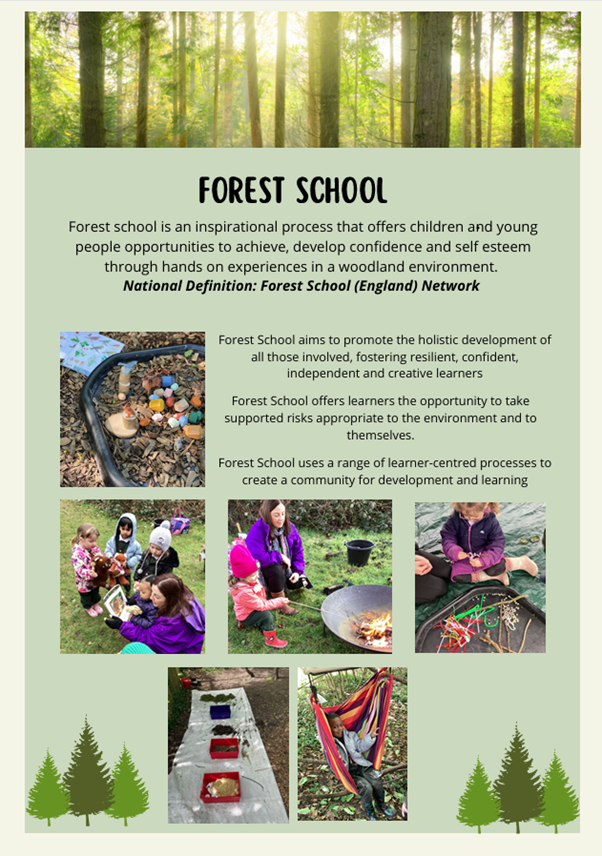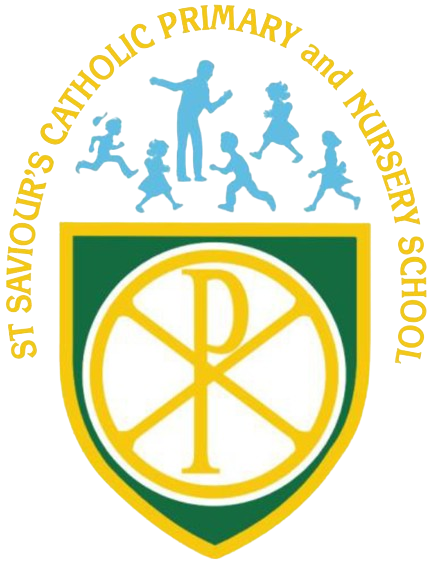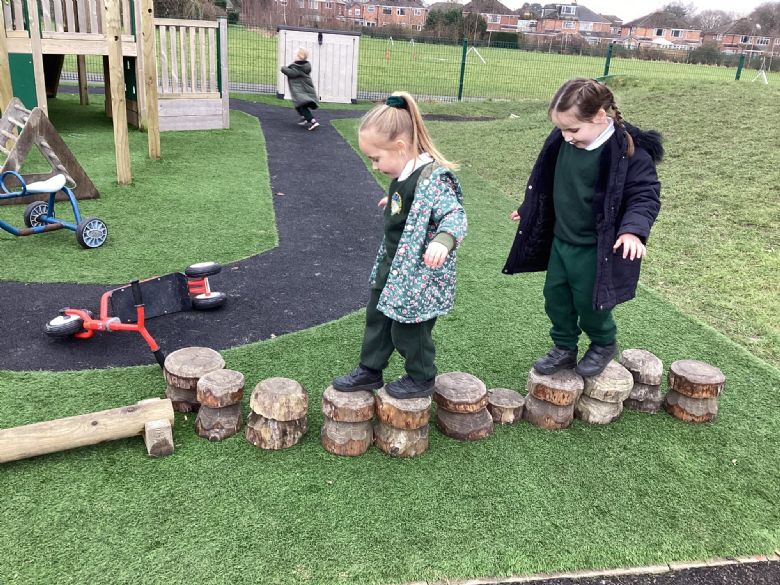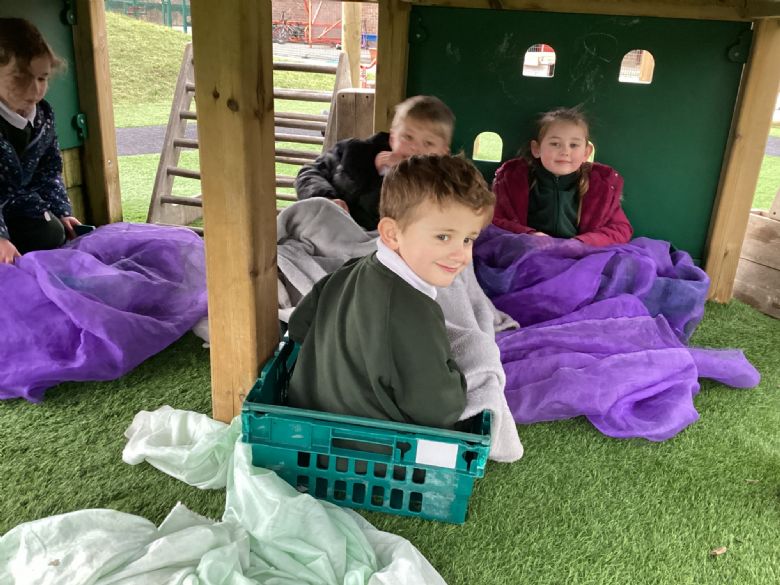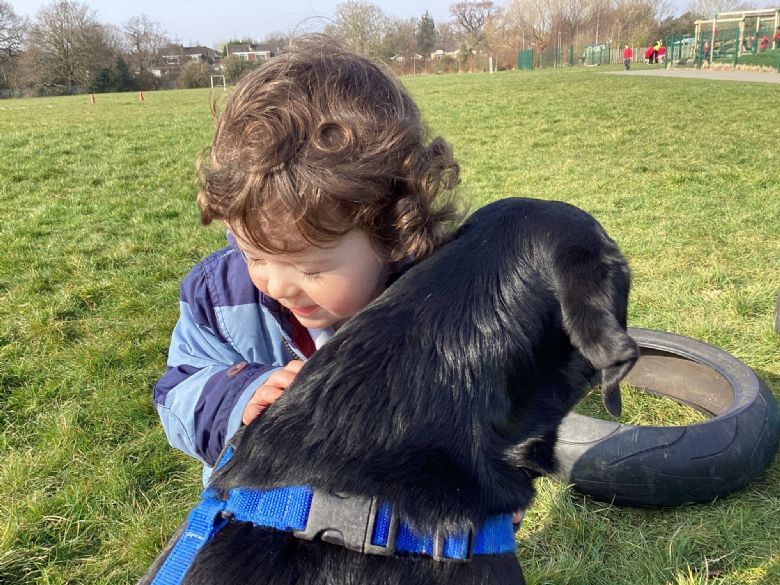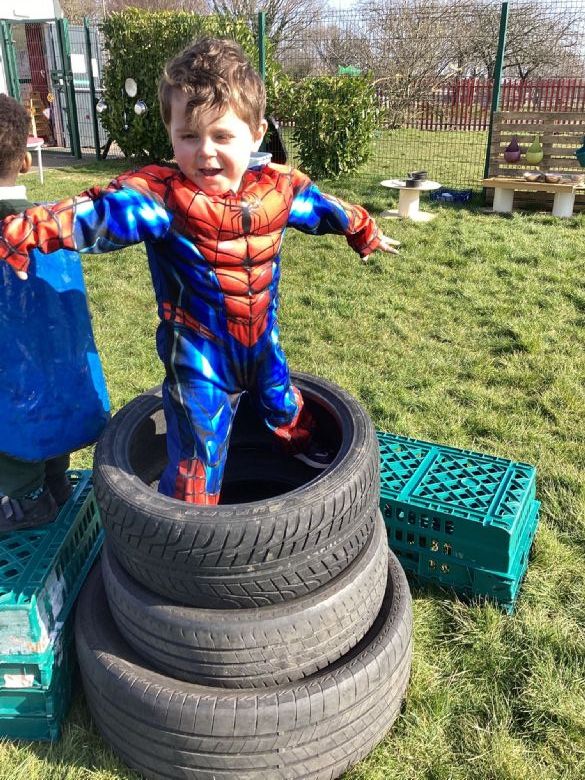Early Years
Welcome to the Early Years
Our vision at St Saviour’s is for all the children in our Early Years to be given the best start in life by instilling a love of learning in a happy, secure, stimulating and challenging environment. We want children to develop strong communication skills that will prepare them for life by providing them with engaging vocabulary rich experiences.
We aim for the children to be independent, both in their learning and their self-care; that they take risks in their learning as they develop determination and resilience and that they understand success and how it feels to be successful. We want our children to be confident, to have positive relationships with the people around them, fostering a sense of community.
Our Early Years Curriculum
In our Early Years Foundation Stage (EYFS), we follow the Revised Early Years Foundation Stage Statutory Framework and Development Matters documents, which provide a solid foundation for young learners to learn through personalised play experiences, exploration and focused learning opportunities. Children have the opportunity to work collaboratively both indoors and outdoors, enabling them to solve problems, reflect on their learning and build on their communication and language skills.
The EYFS framework includes seven areas of learning and development that are equally important and inter-connected. However, three areas, known as Prime Areas, are seen as particularly important for igniting curiosity and enthusiasm for learning, and for building children’s capacity to learn, form relationships and thrive.
The Prime Areas are:
- Communication and Language
- Personal, Social and Emotional Development
- Physical Development
The Prime Areas are strengthened and applied through four specific areas:
- Literacy
- Mathematics
- Understanding the World
- Expressive Arts and Design
To ensure that we provide a well-rounded education, we have carefully designed long term and half termly curriculum maps with scope to personalise the learning and follow children’s interests. This approach ensures that all areas of learning are integrated and covered thoroughly throughout each half-term, resulting in every child having the opportunity to flourish and reach their full potential whilst engaging in a broad and balanced learning journey.
We recognise the importance of fostering the imagination and creativity in children through natural materials, loose parts and imaginative play to promote critical thinking and problem-solving skills. Therefore, we have created a Curiosity Approach inspired harmonious learning environment which creates active learners who are engaged in their learning.
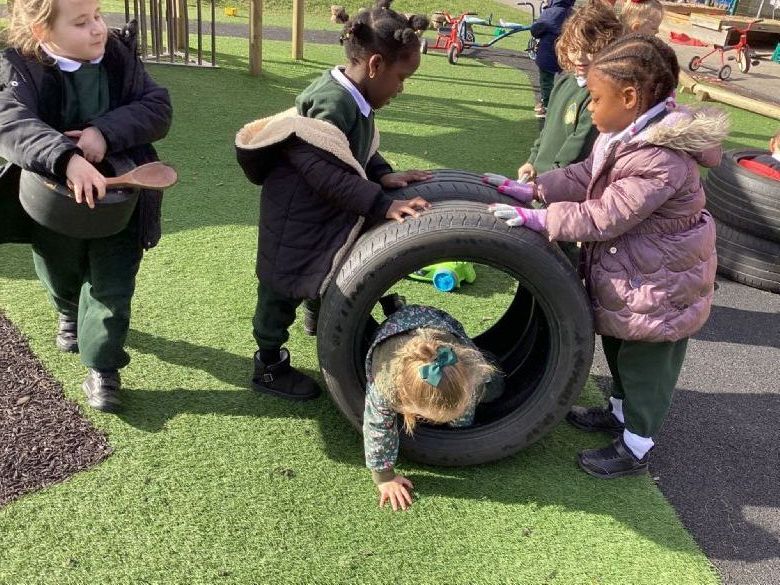
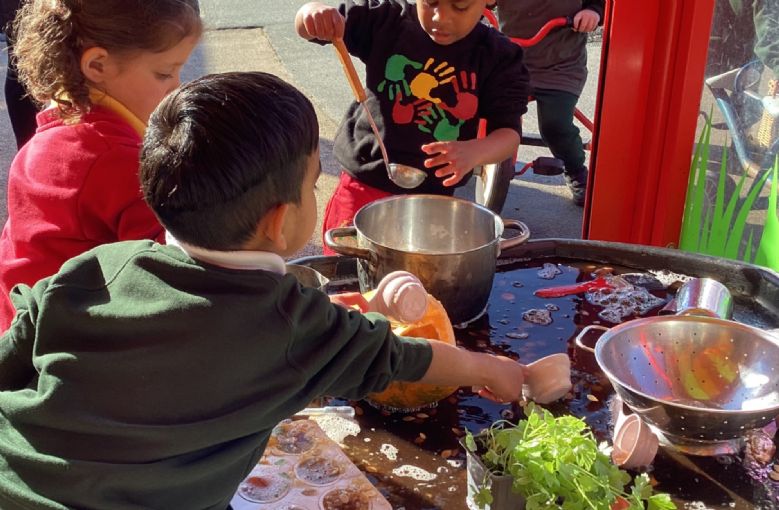
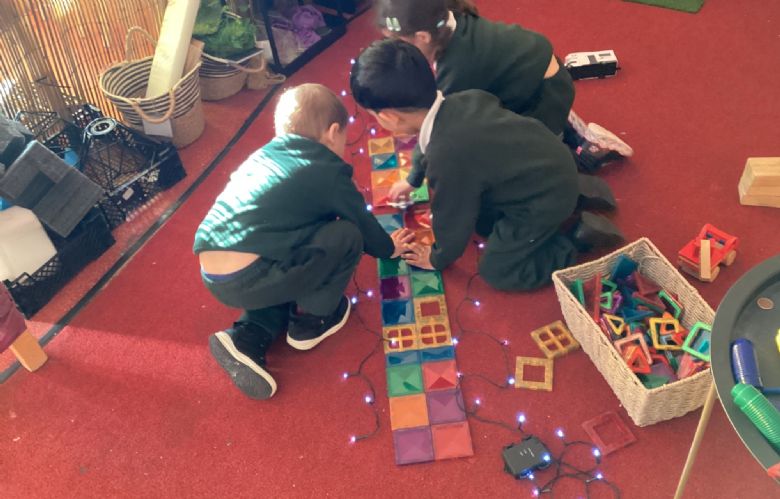
Assessment
Reception Baseline assessment:
Children will be assessed on entry to the EYFS through the compulsory Government Reception Baseline Assessment. This assessment focusses on the learning areas of Maths, Communication and language and Literacy.
Ongoing assessment:
We make regular assessments of children’s learning across the Early Years on a daily basis and we use this information to ensure that future planning reflects identified needs. Assessment in the EYFS takes the form of observations through interactions with the children, child-initiated play, adult led play and other adult led activities. Observations are recorded on the online program ‘Tapestry’ and shared with families.
Summative and formative assessment:
We use summative and ongoing assessment to inform future planning and to better understand the children’s needs and abilities. At the end of Reception, we assess each child’s development against the Early Learning Goals and indicate whether children are meeting expected levels of development, or not yet reaching expected levels (‘emerging’). We use these assessments for the children’s EYFS Profile.
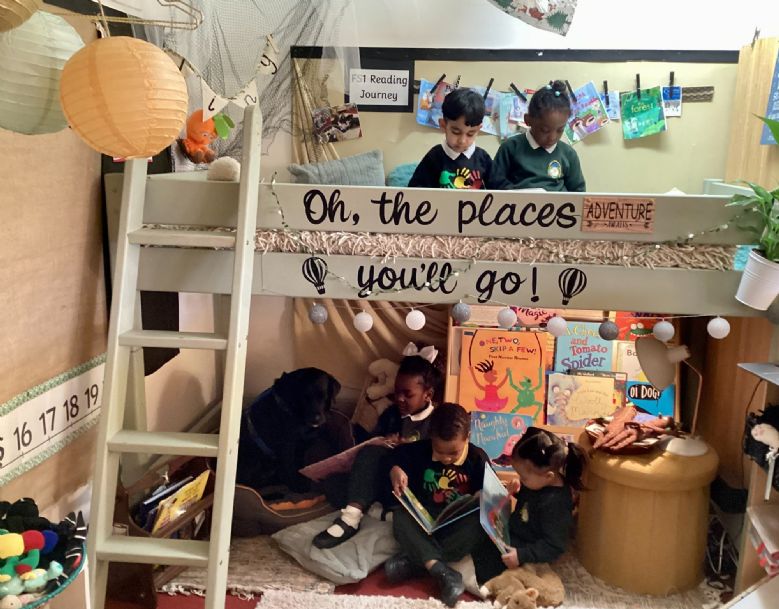
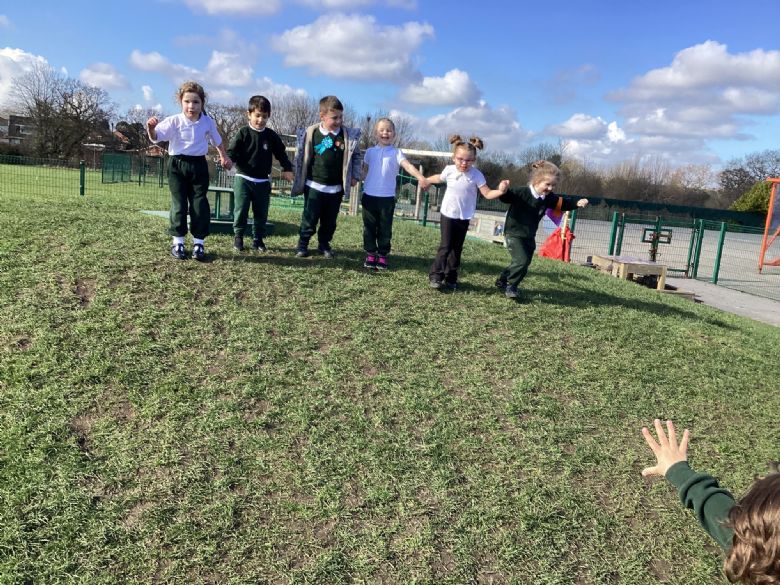
Please take time to visit our Nursery, Foundation Stage 1 and Foundation Stage 2 class pages to follow our class learning journeys.
Our Forest School
